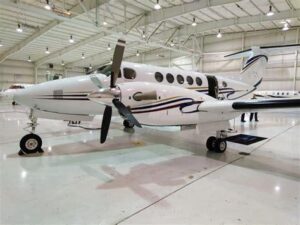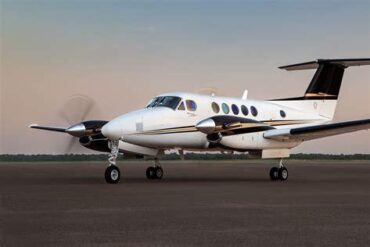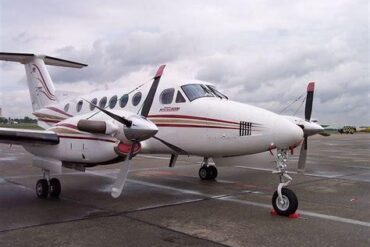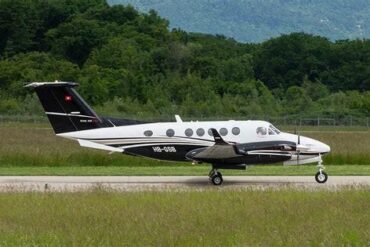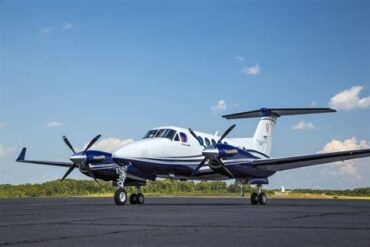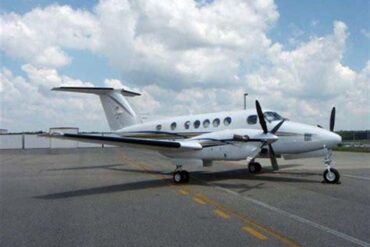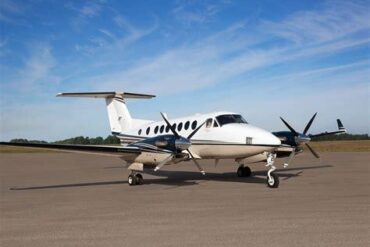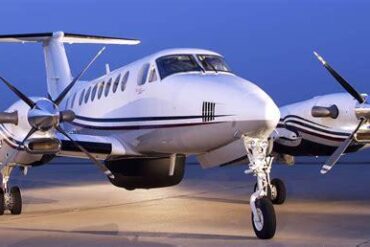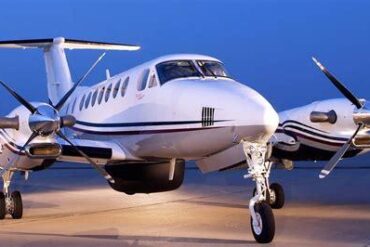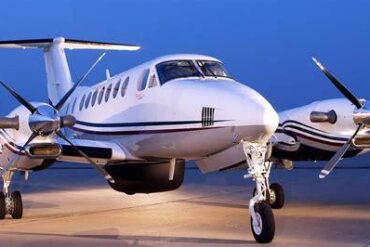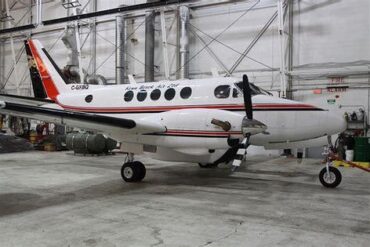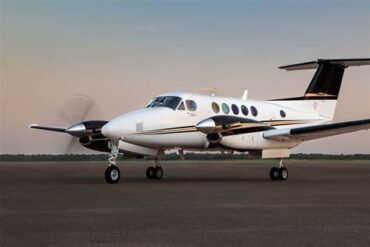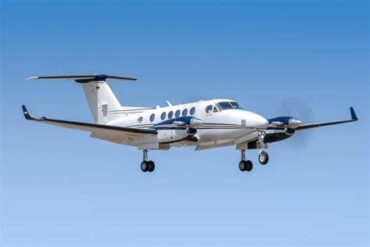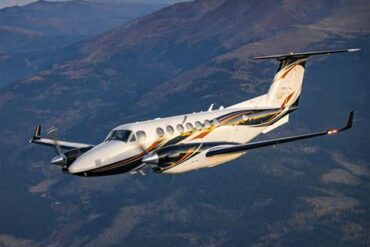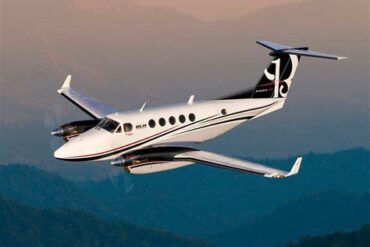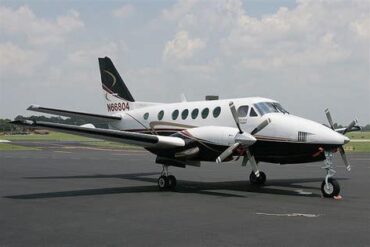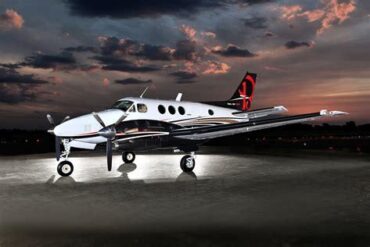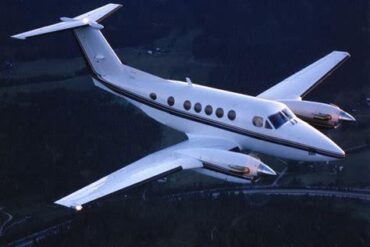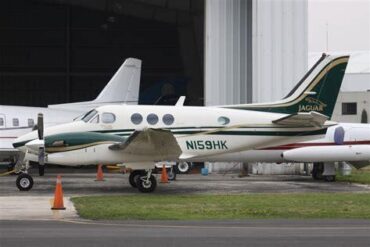The Beechcraft King Air 200, a stalwart in the world of turboprop aircraft, has earned a stellar reputation for its reliability, versatility, and performance. With the addition of Raisbeck Engineering’s enhancements, this aircraft becomes even more appealing to both operators and passengers alike. In this article, we will delve into the price of the Beechcraft King Air 200 equipped with Raisbeck modifications and provide an in-depth analysis of its operating costs.
Overview of the Beechcraft King Air 200
The Beechcraft King Air 200 series has been a favorite among business aviation users since its introduction in the 1970s. This twin-turboprop aircraft can carry up to 9 passengers and is known for its spacious cabin, excellent range, and impressive climb rate. The King Air 200 features a maximum cruise speed of approximately 300 knots and a range of about 1,800 nautical miles, making it an ideal choice for both short hops and longer flights.
Raisbeck Modifications: Elevating Performance
Raisbeck Engineering has developed a variety of modifications for the King Air 200 that significantly enhance its performance characteristics. Among these are:
-
Enhanced Performance Leading Edges: This modification improves lift and reduces stall speed, enhancing safety and handling.
-
Ram Air Recovery System: This system increases engine performance by providing a more efficient airflow to the engines, resulting in better climb rates and fuel efficiency.
-
Composite Winglets: These winglets improve aerodynamic efficiency, reduce drag, and increase range.
These modifications not only make the aircraft more efficient but also enhance passenger comfort and overall operational flexibility.
Price of the Beechcraft King Air 200 with Raisbeck Modifications
When considering the purchase price of a Beechcraft King Air 200 equipped with Raisbeck modifications, various factors come into play, including age, condition, and specific customization options. On average, the price for a pre-owned King Air 200 with Raisbeck enhancements can range from $1.5 million to $3 million.
Factors Influencing Price
-
Aircraft Age: Newer models generally command higher prices. A 2007 or later model with Raisbeck modifications may cost more than an older version.
-
Total Time and Maintenance History: Aircraft with lower total flight hours and a well-documented maintenance history are more valuable.
-
Customization and Upgrades: Additional features such as upgraded avionics, interior refurbishments, and other bespoke options can significantly influence the price.
-
Market Demand: The demand for turboprop aircraft can fluctuate, affecting resale values. Current market conditions should always be taken into consideration.
Operating Costs of the Beechcraft King Air 200
Understanding the operating costs associated with the Beechcraft King Air 200 is crucial for potential buyers and operators. These costs can be broken down into several categories:
1. Fuel Costs
The King Air 200 typically consumes about 30 to 40 gallons of fuel per hour, depending on operational conditions and weight. With an average fuel price of around $5.00 per gallon, operators can expect fuel costs to range from $150 to $200 per hour. This is a significant factor when calculating the overall operating budget.
2. Maintenance Costs
Regular maintenance is essential for the safe operation of any aircraft. For the King Air 200, annual maintenance costs can range from $50,000 to $100,000. These costs include routine inspections, component replacements, and adherence to regulatory requirements. It is advisable to set aside a percentage of the aircraft’s value each year for ongoing maintenance needs.
3. Insurance Costs
Insurance is another critical expense to consider. Depending on the pilot’s experience, the aircraft’s value, and coverage limits, insurance premiums can range from $15,000 to $30,000 annually. This cost can vary based on the operator’s risk profile and the specific coverage selected.
4. Crew Salaries
If the aircraft is operated under a commercial certificate, crew salaries must also be factored in. A typical pilot’s salary for a King Air 200 can range from $60,000 to $100,000 per year, depending on experience and operational demands. If two pilots are required for longer flights, this cost can double.
5. Hangar and Storage Costs
Hangar fees vary widely based on location and facility. On average, operators can expect to pay between $500 to $2,500 per month for hangar space. This translates to $6,000 to $30,000 annually. Choosing a hangar in a high-demand area may drive these costs higher.
6. Other Miscellaneous Costs
Other costs may include landing fees, ground handling, and navigation charges, which can add another $10,000 to $20,000 to the annual operating budget. These expenses can vary significantly depending on the frequency of travel and destination airports.
Total Operating Cost Estimate
Considering all of the above factors, the total estimated operating costs for a Beechcraft King Air 200 can be summarized as follows:
-
Fuel Costs: $150 to $200 per hour
-
Maintenance Costs: $50,000 to $100,000 annually
-
Insurance Costs: $15,000 to $30,000 annually
-
Crew Salaries: $60,000 to $200,000 annually (depending on crew size)
-
Hangar Costs: $6,000 to $30,000 annually
-
Miscellaneous Costs: $10,000 to $20,000 annually
This brings the total estimated operating costs to approximately $300,000 to $600,000 per year, assuming an average flight time of 400 hours annually.
Conclusion
The Beechcraft King Air 200, particularly when enhanced with Raisbeck modifications, remains a formidable option for those seeking a reliable and efficient turboprop aircraft. While the initial purchase price can be substantial, understanding the detailed operating costs is essential for effective budgeting and financial planning. By weighing these considerations, potential owners can make informed decisions that align with their operational needs and financial capabilities. The King Air 200 continues to be a preferred choice among business aviation users, offering a blend of performance, comfort, and operational efficiency that few can match.
